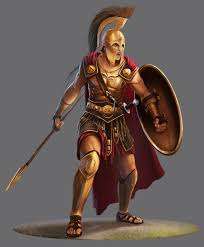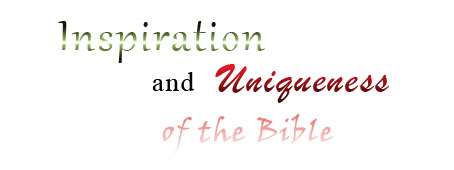

The Armour of God: The Belt of Truth
Pr. Christopher Varughese
Referred to as “The Queen of the Epistles,” the Letter to the Ephesians ranks very high in the devotional and theological literature of the Christian Church. Being “an ambassador in bonds” (Eph 6:20), Paul writes this letter to bring forth the thought that Christ is the centre in whom all things unite, and the bond who unites all things. The letter also describes the nature and appearance of the church, and Paul challenges believers to function as the living body of Christ on earth.
To make this clear, Paul emphasises that there is a battle, disharmony, separation between the powers of good and evil. In Ephesians 6:10-20, Paul reminds that the church is in constant battle with the forces of darkness. Christian life is a fight against powerful evil forces headed by Satan. To withstand his attacks, we must depend on God and use every spiritual weapon at our disposal.
Nearing the close of the letter to the Ephesians, possibly the last letter by Paul, he thinks of the greatness of the struggle which lies before the believers. To a group that believed implicitly in demons and devils and evil spirits to have filled the air, Paul had to let them know as to how they should confront such forces in this world.
As Paul musters his defence, he suddenly realises the ready-made scenario. Night and day a soldier had ensured that Paul would not escape. The eerie noise of the chain that bound him by the wrist to the Roman soldier captures his attention. He looks up at the soldier who was compelled by chains to be so near to him. A glimpse at the soldier’s armour unravels a series of imageries into his mind and the narrative unfolds. The helmet, the shield, the breastplate, the sword, the belt and the shoes were essentialities of the soldier’s armour.
Yes, the believer too has his/her armour. Part by part Paul translates the armour of the soldier into Christian terms. As apostle Paul describes the armour of God, he is referring to more than a simple set of helpful tips. He is talking about the impregnable defences of the Almighty God. These are keys to withstanding the attacks and onslaughts of the great dragon of old, Satan the devil. They are ultimate and infinitely powerful tools available to us as Christians.
Belt is not something that easily catches our attention. Paul could have started with the mighty sword of the Spirit, the towering shield of faith or the shining breastplate of righteousness. Though these would have crossed his eyes, there was no hesitation for Paul to write about the belt as the foremost. It indicates that the belt assumes such an importance in a soldier’s life that Paul was forced to use it first. His acquaintance with the soldiers over a lengthy time-period must have helped him to arrive at that decision.
The “girdle, or sash,” was always an important part of the dress of the ancient people, in war as well as in peace. As they wore loose, flowing robes, it became necessary to gird them up when they travelled, or ran, or laboured. The girdle was often highly ornamented, and was also the place where they carried their money, their pipe, their writing instruments, etc.
As for a soldier, the ‘cingulim’ or ‘balteus’ or the ‘belt’, was his badge of office, worn with the tunic at all times. It played a crucial role in the effectiveness of a soldier’s armour. It was the belt which girt in the soldier’s tunic. It also held the scabbard from which his sword hung and which gave him freedom of movement. The “apron” of decorated leather strips gave some protection to the groin in battle. Also, the jangling noise made by the apron when the legionaries marched helped to intimidate the enemy.” The “girdle” seems sometimes to have been a cincture of iron or steel, and designed to keep every part of the armour in its place, and to gird the soldier on every side. Thus, the belt was inevitable for a soldier.
By equating truth with the belt, Paul leads us into an array of reflections. Just as how a belt is always worn in action, we must be girded with truth. It should cleave to us as a belt cleaves to our body. It keeps our loose and wandering robes of contemplations in check without which it would be difficult for us to preserve firmness and consistency to our Christian walk.
Though the belt may not be a weapon on its own, it provides us the space to carry the sword of the Spirit. Similar to how the vital parts of our body are protected by the leather strips hung from the belt, truth becomes the cornerstone that preserves a person from lax views of morals, of duty and of religion that would otherwise leave him exposed to every assault. As the girdle kept all the parts of the armour in their proper place, truth serves to give consistency and firmness to our conduct. It makes the soul sincere, firm, constant, and always on its guard. A person who has no consistent views of truth, is just the man for the adversary successfully to assail.
The belt of truth in our armoury is what the enemy always goes for in battle, especially when it is at its fiercest. With the change of fashions, the belt is what now holds our trousers in place. Satan knows that if he succeeds in cutting it loose, not only does he make you the laughing stock in the battlefield, he renders your defences without power. It becomes essential, therefore, to have our belt of truth on at all times, firmly buckled, so that we don’t give the enemy the opportunity to incapacitate us.
But what is this truth that we should wear? Aneel Aranha speaks of the three ways in which the Scripture uses the word ‘truth’. One is truth in word and deed — the opposite of falsehood. Another is truth in the heart — the opposite of hypocrisy. And the third is truth in God. All three truths are the links in the belt that God asks us to wear.
Truth in word and deed is essentially honesty. We normally associate honesty with ‘not telling a lie’. But honesty goes far beyond. It involves complete truthfulness in every single thing that we say and do. Most of us are not honest. Even the more righteous among us believe that a certain degree of dishonesty is required if we are to survive in this world and, consequently, go through life perjuring ourselves in multiple ways. We will never be able to wear the belt of truth unless we are able to reprogram our words and actions so that they are governed by what God expects of us.
The second meaning is truth in heart. It refers to the sincerity of the heart. Sincerity leads us to be open to God. It keeps our motives pure, devoid of malice and wickedness towards our fellow beings. Keeping our hearts pure is essential if we are to be effective in spiritual warfare. Some of the untruths in the heart are pride, selfishness, jealousy, envy, bitterness, hypocrisy, deceit and even worry. A good step in ensuring that this link in the belt of truth is always intact is learning to listen in humility to what God wants to speak to us or what the godly people would want to say to us. While sins in word and deed are corrected relatively easily, such sins of the heart can be remedied only by the Holy Spirit.
The final truth, and without the doubt the most important truth, is truth in God. “I am the truth,” said Jesus. Our concepts of truth are not something that we decide by ourselves, but based on a truth outside of ourselves. It is often referred to as Absolute Truth. This truth is Jesus. Not only is He the most important link in the belt that we are asked to wear, He is the material that runs through the entire fabric.
The Gospel of Jesus Christ is the truth of God; unless this be known and conscientiously believed, nobody can enter the spiritual warfare with any advantage or prospect of success. By this alone we discover who our enemies are, and how they come on to attack us; and by this we know where our strength lies; and, as the truth is great, and must prevail, we are to gird ourselves with this against all false religion, and the various winds of doctrine by which cunning men and insidious devils lie in wait to deceive.
When we accept the fact that Jesus is the truth, we accept that everything that he said is true and if we use what he said as a way of living our life, then we will assuredly be walking in the truth! Jesus is also the Word (John 1:1; Rev 19:13). This makes the Word the truth as well. Understanding the Word as truth isn’t easy but to ensure that we wouldn’t be handicapped as a result of this Jesus promised us a guide - the Holy Spirit.
“All this I have spoken while still with you,” Jesus said before he ascended into heaven. “But the Counselor, the Holy Spirit, whom the Father will send in my name, will teach you all things and will remind you of everything I have said to you.” (John 14:25) The Holy Spirit leads us into the truth and will explain a lot of things as we delve into it. He will convict us when necessary. He will cast light in the shadows of the heart where sins are hidden. He will peel off the masks of deceit that we wear. He will reveal the truth to us. We need to remember that the enemy will often try to subvert the truth, and those not entirely filled with the Holy Spirit can be misled.
On occasions when you need to make decisions on your own, ask yourself if what you do will bring you closer to God or take you away from him. If it brings you closer to God, you simply cannot go wrong.
There may be times when the belt of truth that we wear around our waist might crack. We might do something that we shouldn’t have done. Do not attempt to patch up the belt on our own or try to hide the break from view and pretend that nothing untoward has happened. Though this might be the only mistake that we have made in ages, it is enough to leave us open to the enemy’s assaults and a quick fix could prove extremely dangerous. Simply acknowledge the belt is broken and ask God to fix it. This consists of admitting that we made a mistake and seek God’s pardon.
So—how secure is your belt?





